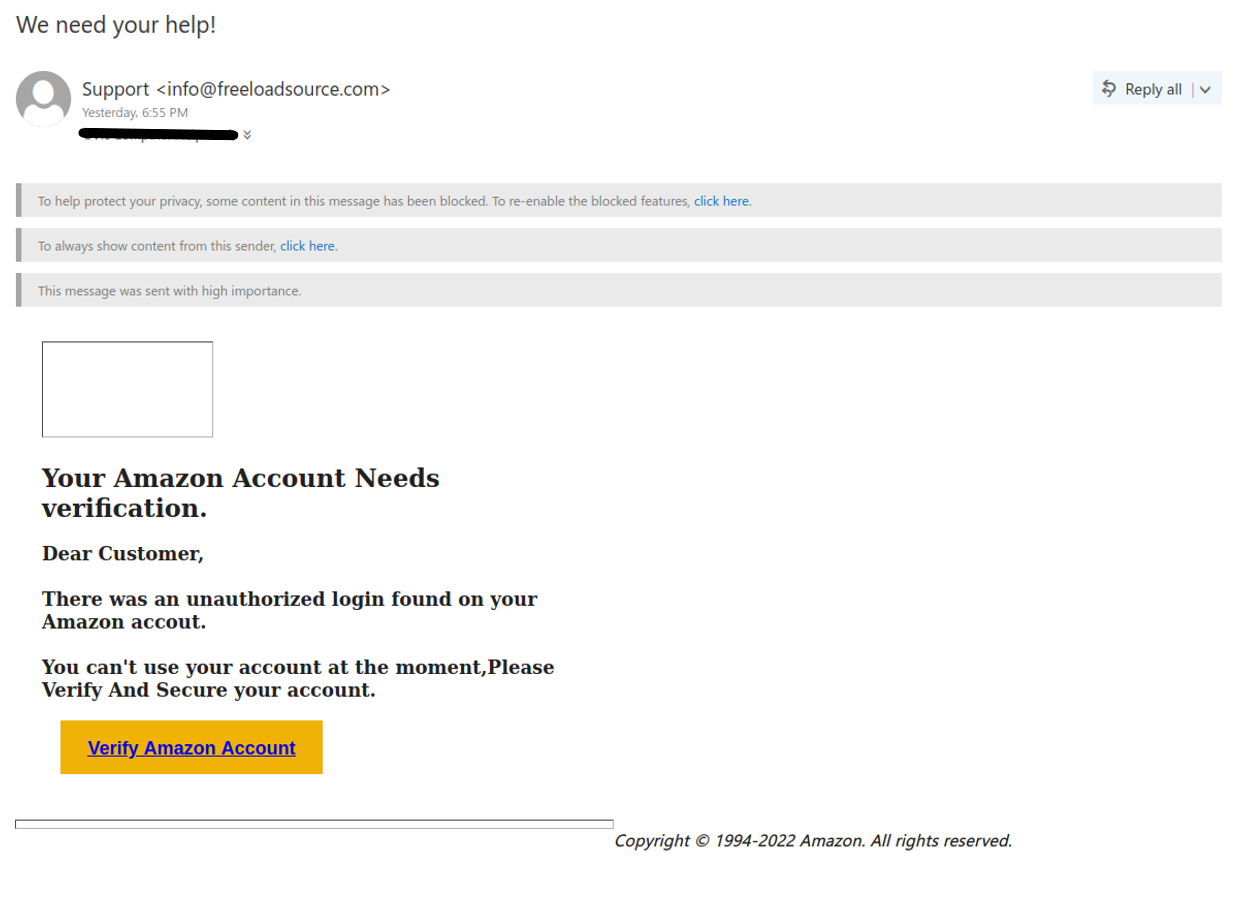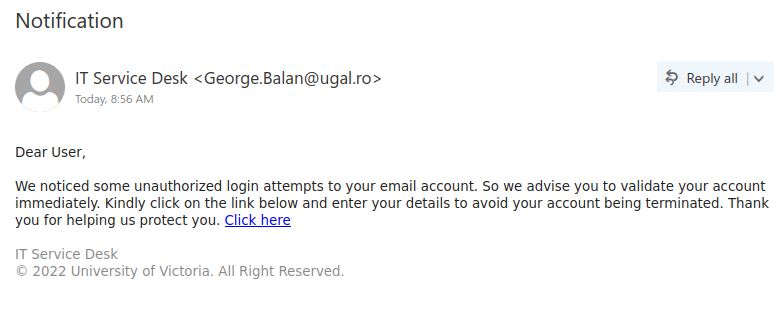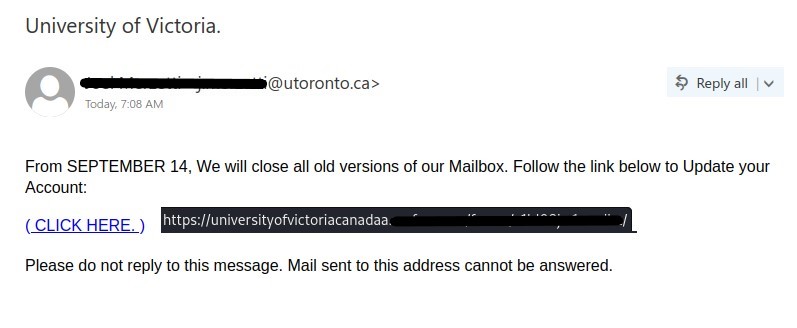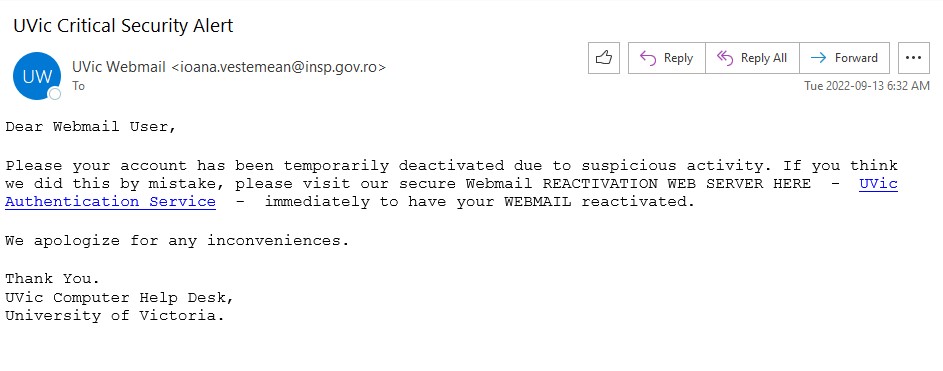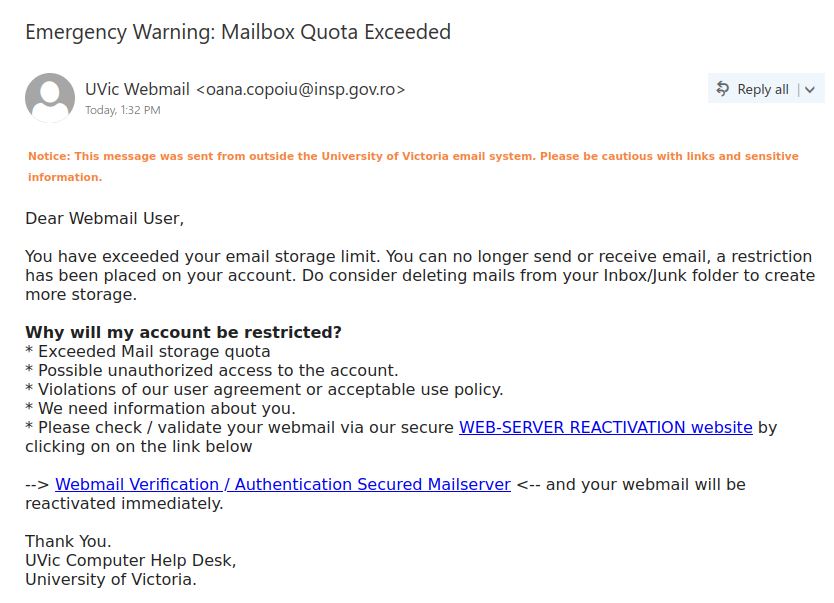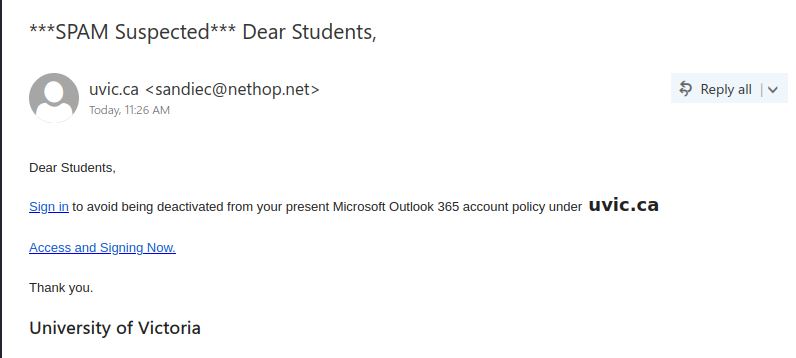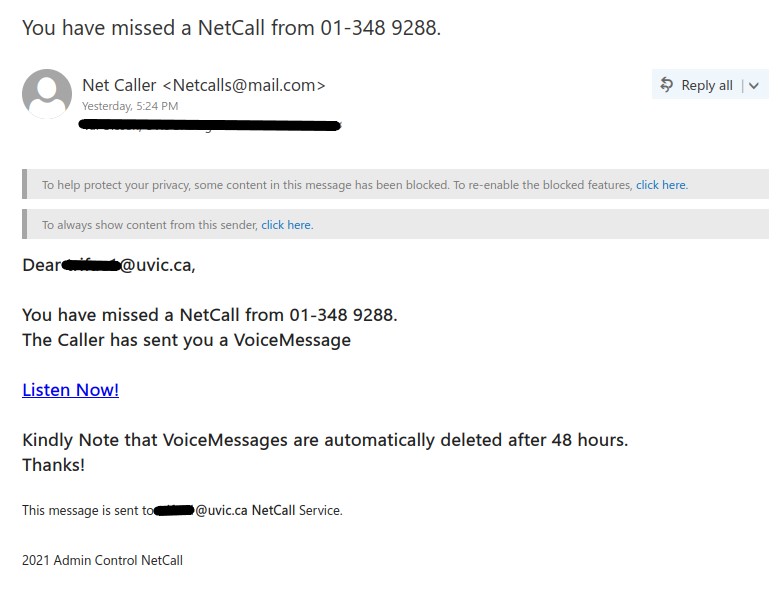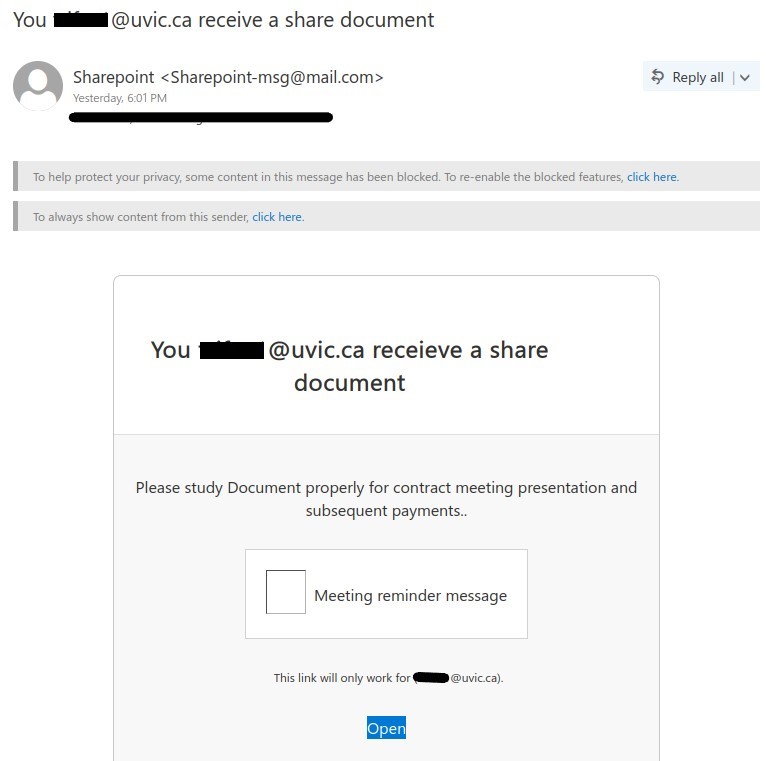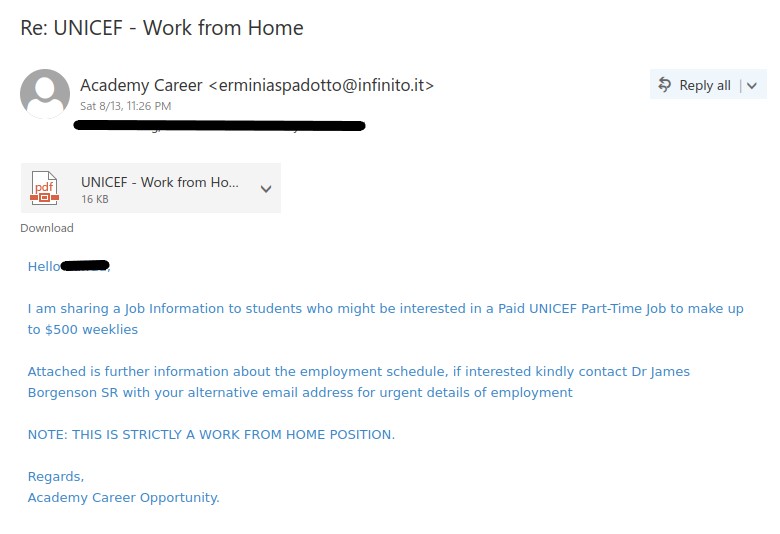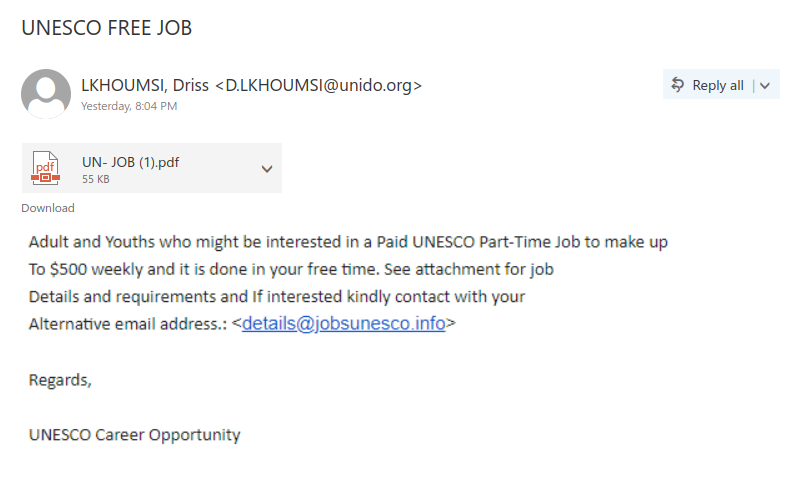If you received an email with this subject, beware, as this a phishing email looking to steal credentials.
This emails creates a fake sense of urgency by claiming that you need to verify your amazon account as it is inaccessible due to unauthorized login. The email has usual phishing signs: asking to verify amazon account but looking at the sender address you would know it is not from amazon. The link is also not hosted on amazon domain (check by hovering over the link). The salutation is generic “Dear Customer” , the email also have spelling errors, needless capitalization, the subject line doesn’t relate to the content in the email body.
Never be in a hurry to take the bait and click on links. Just be calm and look for phishing signs, you would be able to spot it. If still in doubt, always consult with helpdesk or your desktop support.
